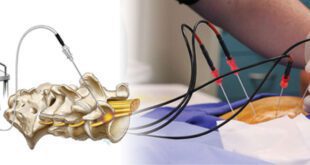“The percentage of children with a food allergy increased by about 50% between 1997 and 2011.”
 Is peanut allergy the only allergy that is serious? What about other foods?
Is peanut allergy the only allergy that is serious? What about other foods?
Many foods in addition to peanuts can cause a serious allergic reaction. When children come into contact with the foods to which they are allergic, they can develop symptoms. This is an allergic reaction. Foods that cause an allergic reaction are called allergens. Sometimes, these reactions can be severe and life-threatening. No one can predict how severe a reaction will be.
Why are there so many more kids with food allergies now than when I was a kid?
Food allergies are on the rise, but no one knows why. The percentage of children with a food allergy has increased by about 50% between 1997 and 2011. One in 13 children in the U.S. now has a food allergy. Around 15 million people in the United States have a food allergy.
Is there a medicine a child can take to prevent allergic reactions?
No. The only way to prevent an allergic reaction is to avoid the foods one is allergic to. A medicine called epinephrine can be given to treat a reaction, but it cannot prevent a reaction.
Is there a cure for food allergies? I keep hearing about cures in the news.
No. Researchers are studying possible cures for food allergies. While some studies have shown promising results, there is no definite cure yet for food allergies.
What kinds of foods are people allergic to? Do children have different food allergies than adults?
Any food can be an allergen. The most common food allergies are milk, eggs, peanuts, wheat, soy, fish, shellfish and tree nuts.
The most common food allergies in babies and children are eggs, milk, peanuts, tree nuts, soy and wheat. Adults can also be allergic to these foods, but shellfish, peanuts and tree nuts are the most common food allergies in adults.
Why are schools telling other kids not to bring in certain foods to school? Can’t you just tell the kids with food allergies not to eat those foods?
Children can react to an allergen by eating a food they’re allergic to. They can also react by touching something that has traces of that food on it, such as peanut butter residue. Usually this will result in a local reaction like hives. If they have traces of food on their hands and put their hands in their mouth, they can have a more severe reaction.
Can you develop a food allergy as an adult?
Yes. Food allergies can develop at any age.
Do kids outgrow their food allergies?
Sometimes. Children often outgrow milk, egg, wheat and soy allergies. Peanut, tree nut, fish and shellfish allergies tend to be life-long.
I’ve heard kids can die from food allergies. Is that true?
Yes. Kids with food allergies can have a life-threatening reaction known as anaphylaxis (anna-fil-LACK-sis). The symptoms of anaphylaxis may occur shortly after having contact with an allergen and can get worse quickly. Anaphylaxis must be treated right away to provide the best chance for improvement and prevent serious, potentially life-threatening complications. Symptoms of anaphylaxis can involve one or more symptoms of the skin, mouth, eyes, lungs, heart, gut and brain. Some symptoms may include hives, difficulty swallowing, trouble breathing or vomiting.
How can I tell if I have a food allergy?
An allergy specialist can diagnose a food allergy. The specialist will diagnose based on symptoms, medical history, a physical exam and test results.
How careful do people with food allergies need to be? Isn’t it good enough to be careful when they buy food or do they need to do more?
People with food allergies need to be aware of everything they eat. They need to read all food labels and know the ingredients in foods that other people make. Foods that seem “safe” can have hidden allergens and cause a reaction. They also need to be prepared to treat an allergic reaction with a medicine called epinephrine, which comes in a device called an autoinjector. After using their epinephrine auto-injector, they need to call 911 and go to the hospital.
Can kids with food allergies go to events where food is served, like birthday parties and holiday celebrations?
Yes, but they must be careful about what they eat and touch. With careful planning, a parent can make sure their child has safe food to eat. This may involve calling the host before the event to check the ingredients of foods being served. Or the parent may want to bring food that is safe for a child to eat.
What can I do if I know someone with a food allergy?
You can help by learning how people with food allergies avoid allergic reactions. They need to be extra careful because an allergic reaction can be life-threatening. People with food allergies must avoid allergens that may be passed from one food to another. They need to wash their hands before and after they eat.
So, they may ask you questions about food you’re serving and if the utensils have been used for other foods. Or they may ask you to wash your hands after you’ve prepared a food or eaten a food that may contain allergens.
They must read food labels. A child with food allergies may need your help reading labels to eat safely. Find out what to do in case of an allergic reaction. Be prepared to help someone use their epinephrine auto-injector and call 911. If you are caring for a child, the parents can teach you how to give this medicine.
(Source: www.kidswithfoodallergies.org)
Check Also
Hungry Heart
By Alex Anderson The songwriter and performer Bruce Springsteen was right when he wrote, “Everybody’s …
 Central Florida Health and Wellness Magazine Health and Wellness Articles of the Villages
Central Florida Health and Wellness Magazine Health and Wellness Articles of the Villages

